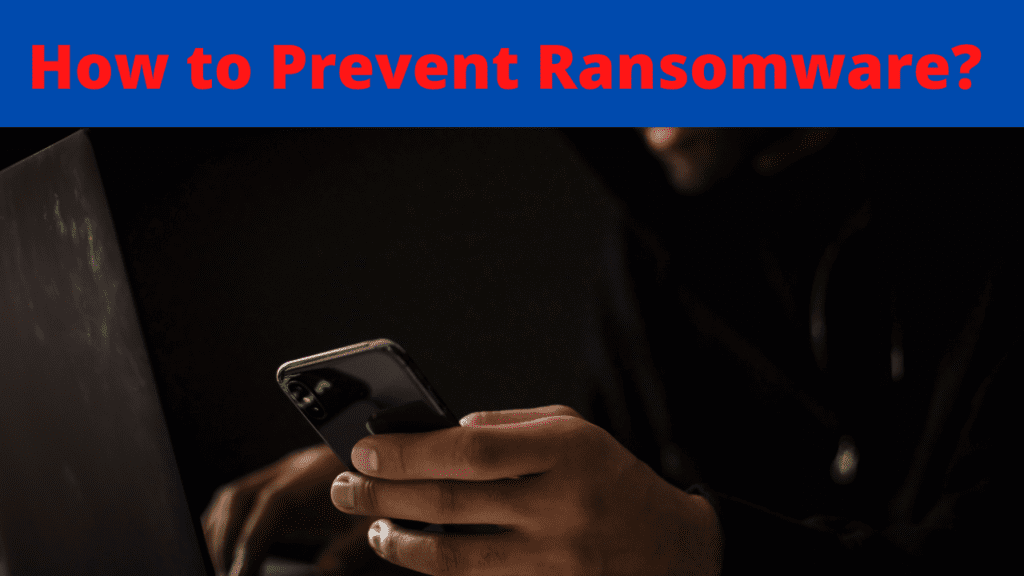When ransomware or other forms of encryption are employed When a Trojan virus infects your computer, it encrypts or disables your data. When ransomware seizes possession of a “digital hostage,” such as a file, it demands payment of a ransom in order to release it.
It is critical to be prepared if you come across a locked laptop or an encrypted file. Through the use of security software and vigilant monitoring, infection risks may be substantially minimised.
By using anti-ransomware software, you may be able to prevent paying exorbitant amounts of money for the potential release of your data.
Ransomware outbreaks may be distributed in a variety of ways, including via unsecured or fraudulent websites, software downloads, and spam email. Malware is a kind of ransomware that targets both people and businesses of varying sizes.

Ransomware assault triggered by security flaws
You may be the victim of a ransomware assault for a variety of reasons.
- The gadget’s software is out of date.
- There is currently no adequate backup plan in place.
- Cybersecurity has received insufficient attention.
If any of these circumstances apply to your device, you may be at risk of a ransomware attack.
Precautionary Steps
Never click on a potentially hazardous link: It is recommended that you avoid clicking on links included in spam messages or on unfamiliar websites. When you click on one of these fake URLs, an automated download may begin, infecting your machine.
The following methods of disclosing personal information should be avoided: If you get a call, text message, or email seeking personal information from an unknown source, do not respond.
Cybercriminals preparing a ransomware assault may attempt to gather personal information in advance, which they may then use to customise phishing messages to you exactly. If you have any doubts regarding the authenticity of the communication, please contact the sender immediately.
Proceed with care while opening dubious email attachments: Through email attachments, ransomware may infect your machine. Suspicious attachments should be disregarded.
Get in touch with our affiliated Cryptocurrency Forensic Specialists at CNC Intelligence for free by filling out the form below.
To ensure the email is legitimate, pay careful attention to the sender and double-check the sender’s address. Never open attachments that need specific software to see them. If the attachment is contaminated, opening it will initiate a malicious macro, which will enable malware to take control of your machine.
Always make sure that your programmes and operating system are up to date: Updating your applications and operating systems on a regular basis may help keep you safe from viruses. Ensure that you get the most recent security updates when you upgrade. This makes it more difficult for hackers to take advantage of software flaws.
Do not download from unverified sources: Never download software or media files from unknown sites to avoid being targeted by ransomware. Maintain a safe distance from unverified and untrustworthy download sites. Trust seals may be used to identify certain types of websites.
Verify that the website you’re viewing begins with “https” rather than “http” in your browser’s URL bar. Additionally, a shield or lock icon in the URL bar may indicate that the website is secure. Caution should be used while downloading anything onto your mobile device. Depending on your device, you may use the Google Play Store or the Apple App Store.
Utilize VPN services while connecting to public Wi-Fi networks: Prudent use of public Wi-Fi networks may help protect you against ransomware. When your computer is linked to a public Wi-Fi network, it is more susceptible to attack. To ensure your security, avoid utilising public Wi-Fi for sensitive transactions and instead utilise a secure VPN service.
Anti-ransomware protection
Ransomware attacks are not only an issue for individuals. Businesses are often targeted as well. Not only big, profitable enterprises are targeted by ransomware, but also small and medium-sized businesses (SMEs). They often have weak security measures, which makes them more appealing to attackers. The following is a checklist of things that businesses should consider to prevent being targeted by ransomware.
Maintain ongoing access to the most recent operating software, even while in the workplace. Businesses who have previously neglected this area have been shown to be especially susceptible to ransomware attacks.
Increase employee awareness – an employee who is aware of the signs of an assault will be more successful at defending against them. Establish a security mechanism that allows workers to verify the authenticity of an attachment, link, or email.
Ascertain that you have a strategy in place to deal with a ransomware attack.
Continuity – Even in corporate settings, it is essential to regularly backup mission-critical data to external devices. The accountability for this critical task should be established and stated explicitly.
Bottom Line
Ransomware attacks are popular for two reasons: they are very easy to carry out and reward offenders with large sums of money. They are only as deadly as they are because of their enigma. The more people who are aware of them, the less effective they become.
Securing user access and keeping one step ahead of current ransomware distribution techniques are two strategies for avoiding these assaults. Additionally, IT professionals must abandon their view of ransomware as an invincible enemy. Even after an assault has begun, many techniques and tactics may be used.
When you comment, your name, comment, and the timestamp will be public. We also store this data, which may be used for research or content creation in accordance with our Privacy Policy. By commenting, you consent to these terms.
